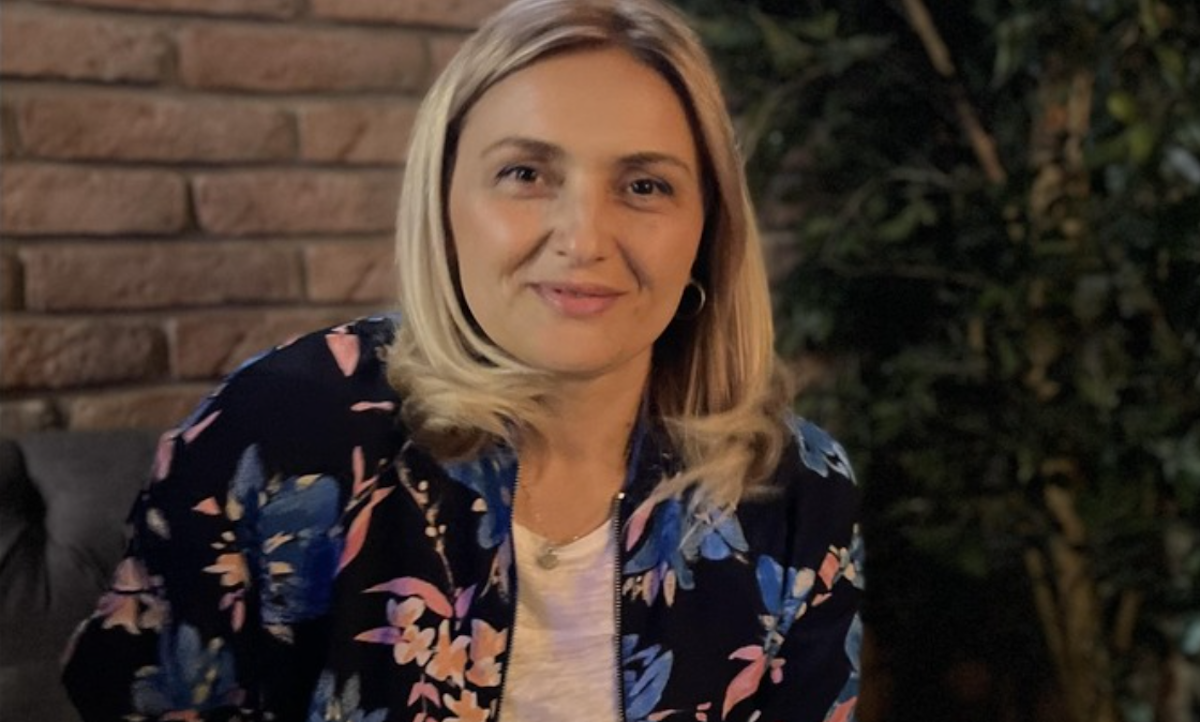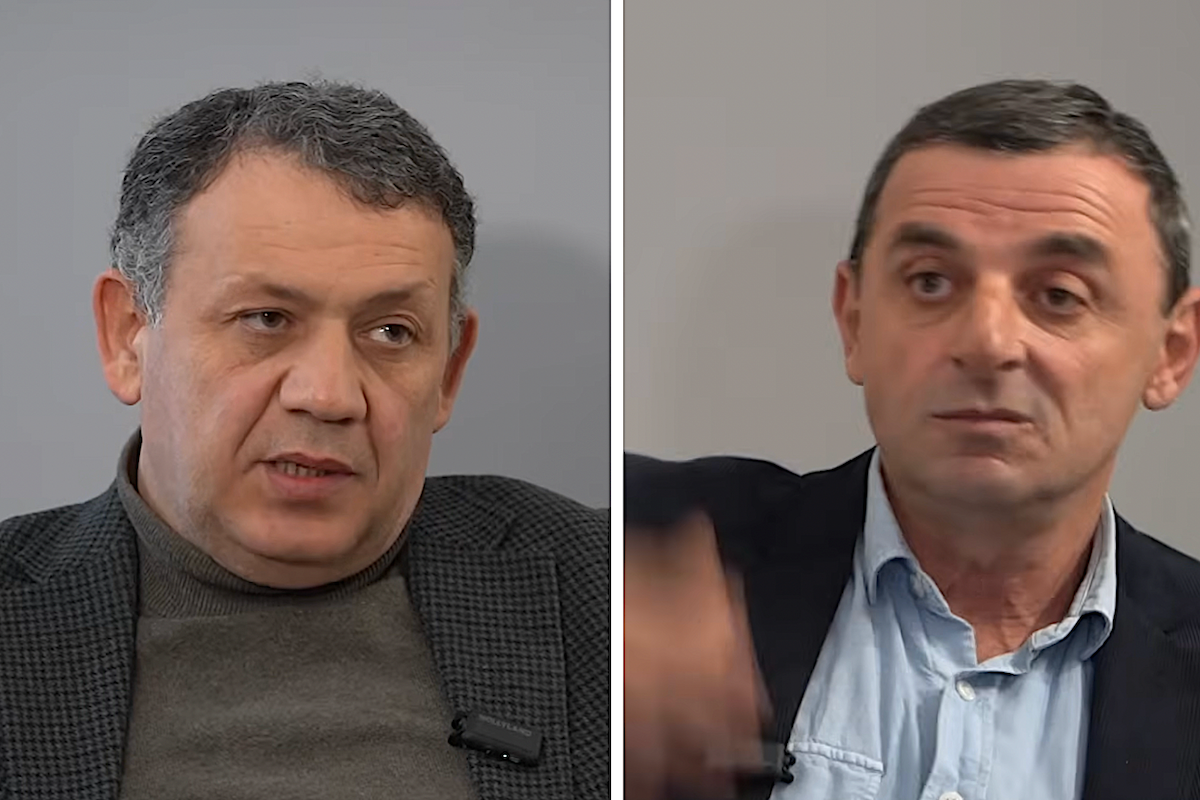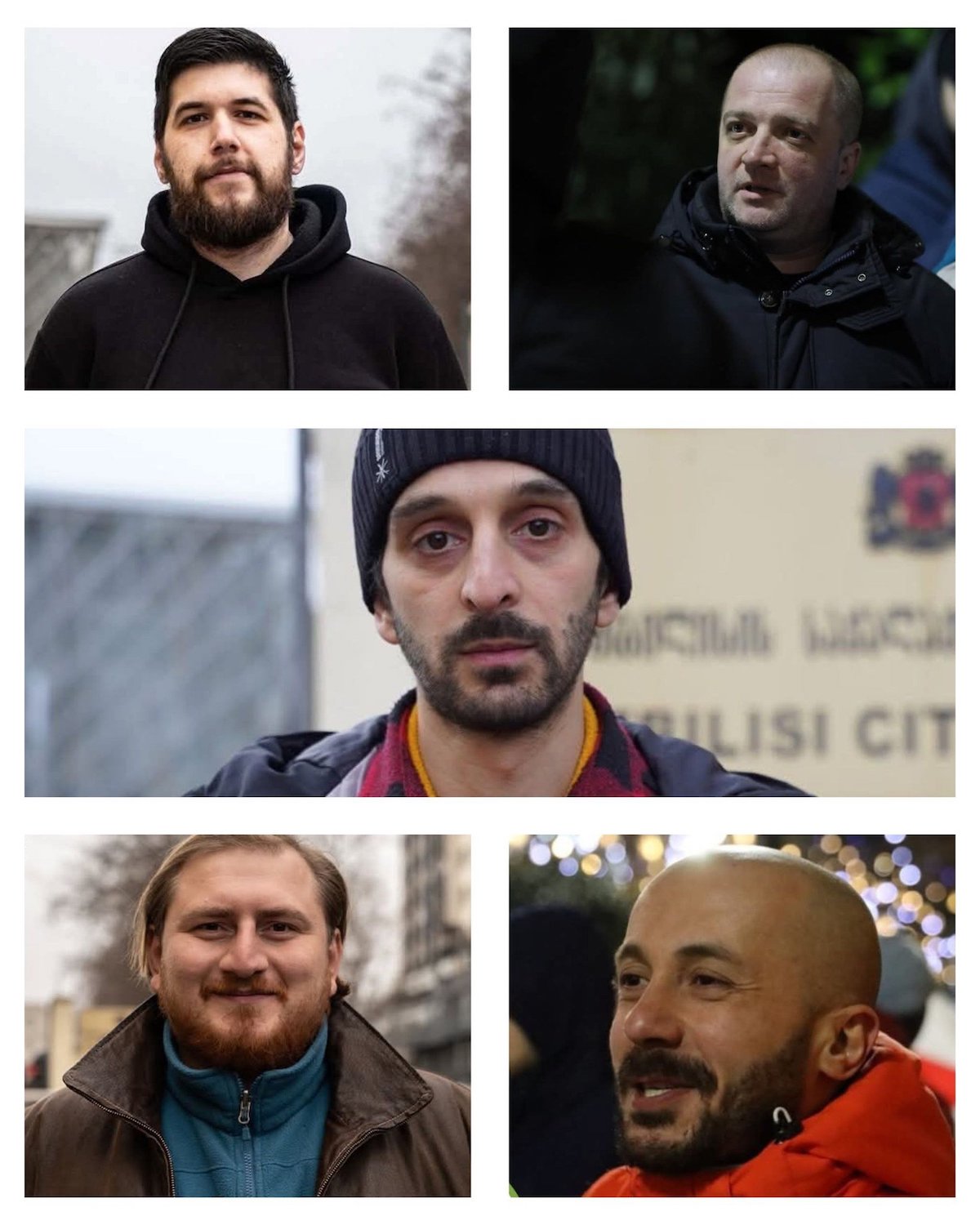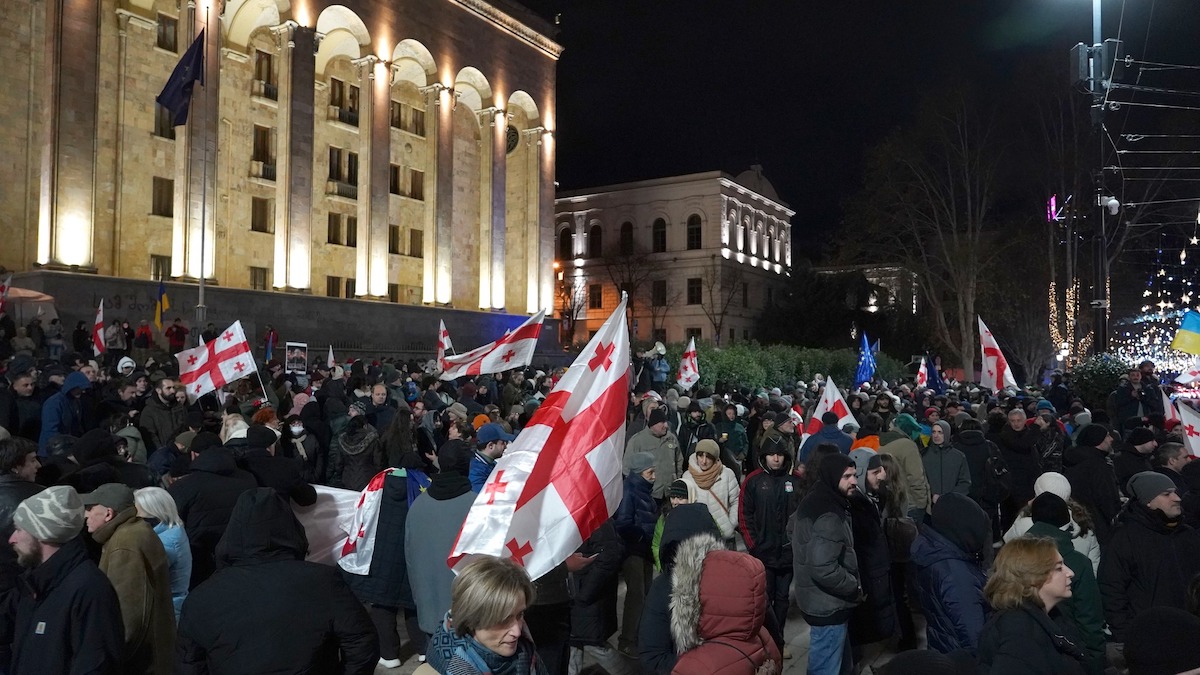Cows, war and faith: story of a Krishna devotee farmer from an Azerbaijani village
A Krishna devotee farmer from Azerbaijan
Jamshid Guliyev is a former journalist and a veteran of military operations in Karabakh. Today he is engaged in farming in a remote village 350 kilometers from Baku. But he is an unusual farmer – in his farm, cows are under no threat of a butcher’s knife. Jamshid is a vegetarian and a follower of Krishna Consciousness, his religion does not allow him to kill animals.
Jamshid’s house, still unfinished, stands on the very outskirts of the village of Garachinar, Goranboy region. Due to shelling during the second Karabakh war, the house was badly damaged.
Around the house is a large courtyard, divided into sections. This is Jamshid’s farm. One of the parts is reserved for the apiary. There is a garden where vegetables are grown and on one part of the yard there are three sheds, which house dozens of cows.
- Political crisis and pro-Russian sentiments – Ukrainian journalists assess Georgia’s political realities
- Mystery of Zargava: the hidden history of Azerbaijani village
- All you need to know about Georgian wine boom
Jamshid is 55 years old. He was born and raised in Kalbajar, a zone of conflict around Nagorno-Karabakh. He received his first higher education in Russia. After the beginning of the first Karabakh war (1992-1994) he returned to his homeland.
“In 1986 I left for Russia. I began studying at the Faculty of History and English of the Pedagogical Institute in Kurgan. Now it sounds strange, but this faculty combined two specialties. When I was a fifth-year student, the war began. I returned to my homeland without receiving a diploma”, says Jamshid.
After returning to Azerbaijan, the first place he went to was Kalbajar, and this became his last trip to his native region. Then he joined the Goranboy Volunteer Battalion, participated in many military operations. He got wounded in the battles for the village of Gulustan.
At the same time, he entered the correspondence department of the Faculty of Journalism of the Baku State University.
From the first year, Jamshid began working as a mouthpiece of the Popular Front of Azerbaijan – in the most popular publications of the 1990s – the Mukhalifet (Opposition) and Azadlyg (Freedom) newspapers.
“My first article was published in the Mukhalifet newspaper, it was called “I want to be an army”. The meaning of the material was that if you see an inept singer, you want to sing instead of him. You see an official who is not coping with his duties – you want to work instead of him. And I wanted to be an army, because the army did not perform its task well. The article was about this plan … “
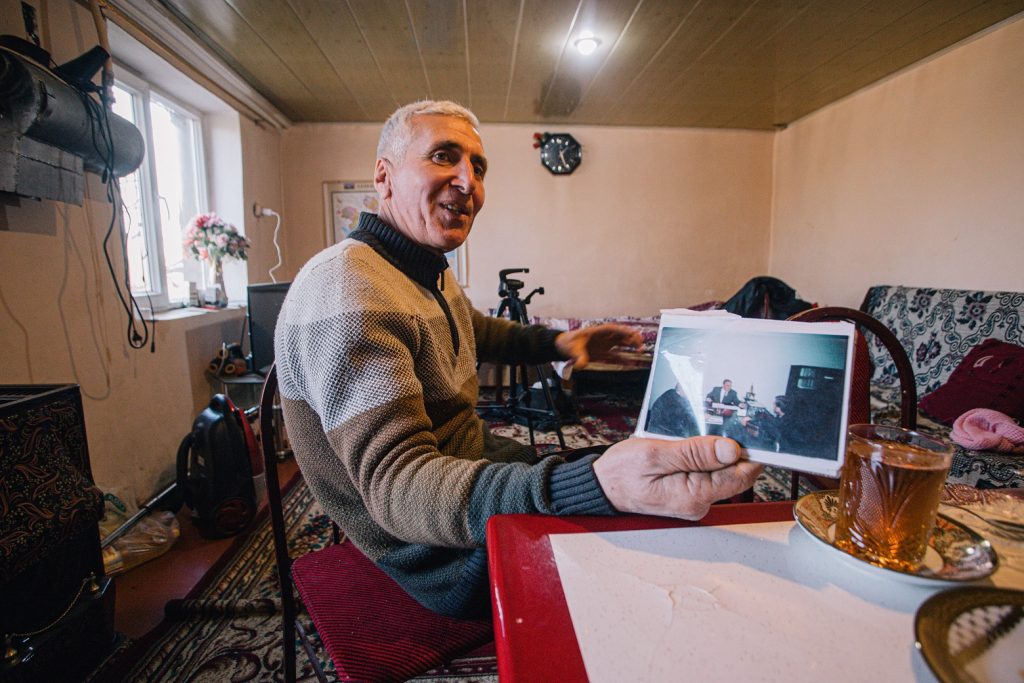
The failures of the army at that time, the losing streak after several important successes, the chaos in the country’s domestic politics shocked Jamshid greatly. It was difficult for him to get used to the idea of the occupation of his native Kalbajar.
“Since that day, I have not been able to see Kalbajar. And now I look forward to the day when I can return to my native village”.
After Kelbajar returned under the control of Azerbaijan as a result of the second Karabakh war, Jamshid applied to the relevant structures twice and expressed a desire to return to his native village with his family and live there.
Jamshid’s son took part in the second Karabakh war, was wounded, and is still being treated.
“In my thoughts I am always busy with journalism”
With the deterioration of the situation in the Azerbaijani media and the gradual disappearance of newspapers, Jamshid was forced to move away from the press. Approximately 10-12 years ago, he moved to one of the remote villages of the Goranboy region, and began farming. But for some time he continued to cooperate with some media outlets.
“The fee was very small. It is hard to work in rural areas – in order to obtain information, you have to travel several kilometers. If you have your own car, you need to spend money on gasoline, if you don’t have a car, you have to take a taxi. After a while, I realised that the fees do not even cover travelling costs, so I was forced to leave. But I really miss journalism. I’m always doing journalism in my mind”.
Vegetarianism inspired by Tolstoy’s story
Jamshid is also interesting because from his youth he remains faithful to Krishna Consciousness – Vedic philosophy.
Krishna is a deity in Hinduism, one of the most popular Hindu deities. In Krishnaism, he is revered as the supreme and original manifestation of God.
According to the Hindu scriptures – the Vedas, at the end of the fourth millennium BC, Krishna descended to earth from the spiritual world, being born in the city of Mathura.
Although there is a temple of Krishna in Baku, there are not so many adherents of this religion. In the regions, they can be counted on the fingers. In the Goranboy region it is only Jamshid and his family. That is why they attract everyone’s attention.
“Since childhood, I would spend a lot of time in the library. My uncle worked as a librarian in our village in Kalbajar, and then he rented the library to my older sister. But I actually did the work there. They were just listed as official employees there. It won’t be an exaggeration if I say that I have read absolutely all the books that were in the library”.
Most of all he liked the stories of the Russian writer Leo Tolstoy. Vegetarianism was promoted in his works. Jamshid was especially impressed by the story “The Wolf” – about a child who sees a wolf in a dream – a wolf who wants to eat him, and refuses to eat chickens.
“Tolstoy knew all the ins and outs of philosophy and applied it in his life. Therefore, once again I was convinced of this by studying it. There is his correspondence with the European Society of Vegetarians, with the vegetarians of India, quotes from the Bhagavad Gita. You are convinced that he became a vegetarian under the influence of Vedic philosophy. He had a beautiful view of the world”, says Jamshid.
According to Jamshid, his choice was also influenced by the example of the leader of the Iranian revolution Khomeini, who was also a vegetarian.
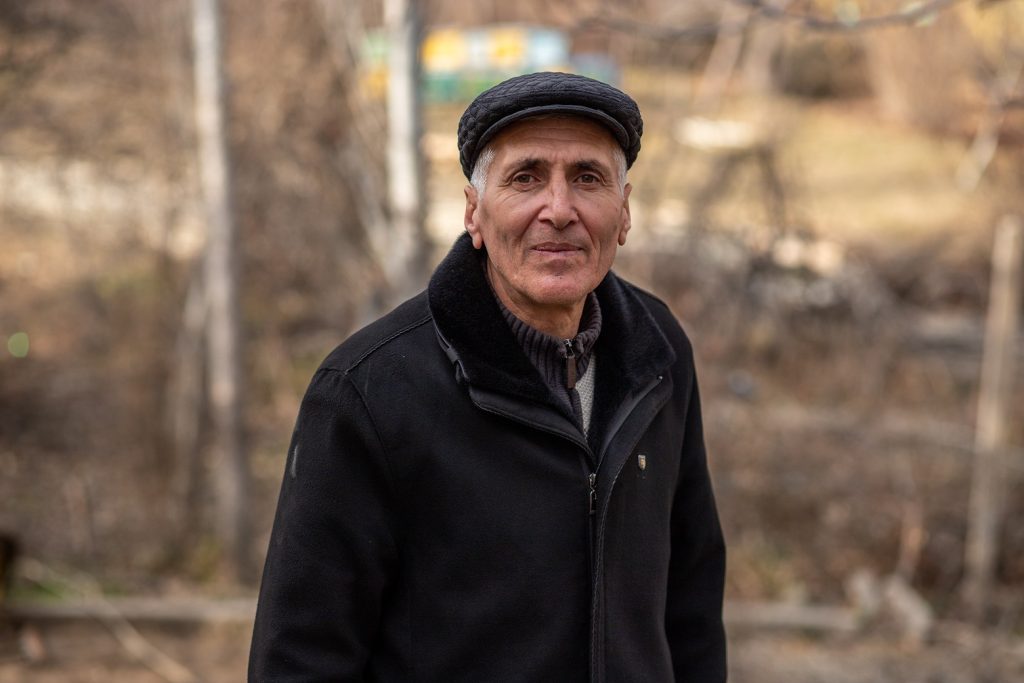
Family pressure
Jamshid says he made the decision to become a vegetarian when he was a child. But due to harassment in the family, he was forced to wait until the time when he became independent.
“My father was a very strict man. He said that while you are a member of this family, you will eat everything that is served on the table. You are not special. But I still partially began to practice vegetarianism. For example, if they cooked bozbash [a traditional Azerbaijani dish, a kind of soup with meat – JAMnews] at home, I didn’t eat meat, I ate potatoes, other parts. But, of course, it’s hard to call it vegetarian”.
The attitude towards his choice of other family members and relatives was also ambiguous.
“The attitude of the people around was different. For example, my own mother, along with me, adhered to vegetarianism, even sang mantras. But my Muslim brother, a strict man of faith, fights with me all the time. Relatives, neighbors say different things about me, but what does it matter?“
Despite this, he was able to maintain good relations with his family.
“Just before your arrival, that same Muslim brother called for help, and I went to help with pleasure. His door to the toilet broke, I repaired it (laughs). They accept me, although they do not accept my path. They perceive it as a personal choice, of course”, says Jamshid.
He was even more lucky with his marriage – his wife is also a follower of Krishna consciousness. Their children (daughter and son) are also vegetarians, like them. His daughter is already married and lives in Baku. Jamshid is already a grandfather, he has a granddaughter.
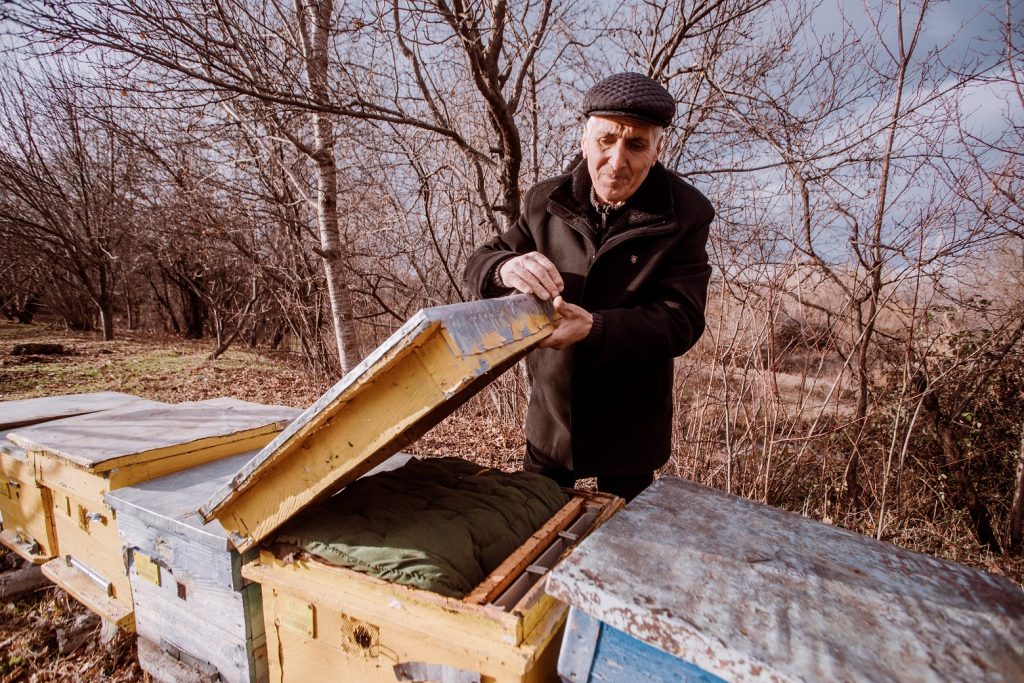
Was it not possible to become a Muslim vegetarian?
We asked Jamshid if it was possible to become a Muslim vegetarian and what forced him to change his religion to Krishna Consciousness? He replied that for him there are no boundaries between religions.
“The Almighty is one. Regardless of the views of Islam, Christianity, Vedic-oriented religions, Saivids, etc. Sometimes some people get the impression that the Vedas speak of many gods, but in reality these are just translation errors … The Almighty may seem to us in different guises, but he is one. Based on this, it makes no difference to me what religion a person adheres to. I am a follower of all religions at the same time. It’s just that your soul is where philosophy better answers your questions about life”.
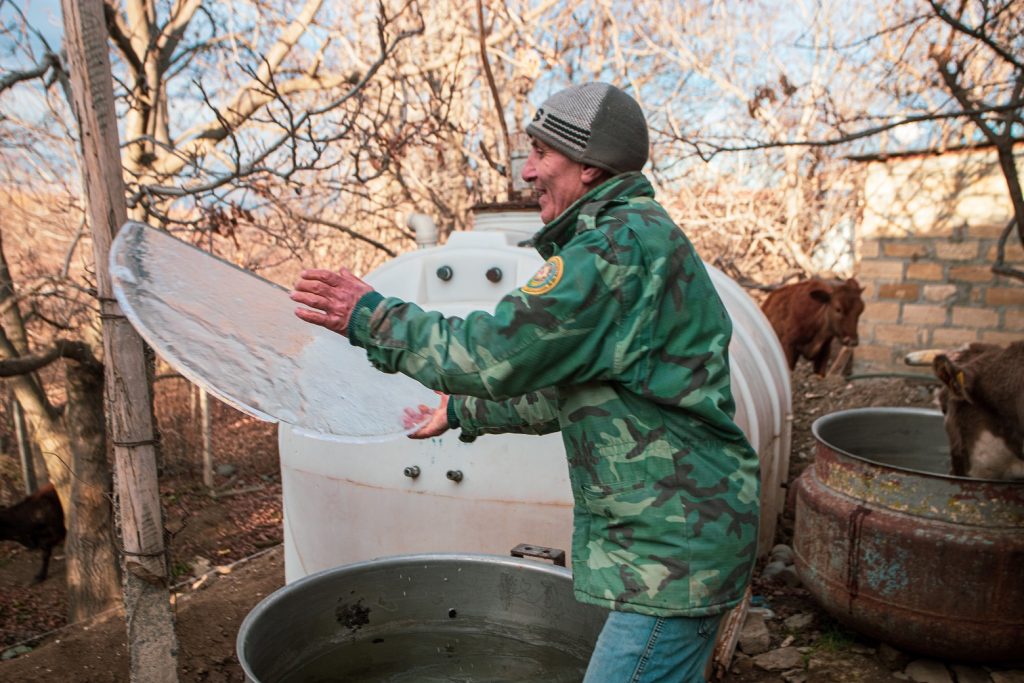
Cattle breeder who does not kill cattle
After moving to this remote village, Jamshid started farming. Beekeeping and agriculture occupy a small part of his farm. The main activity is animal husbandry. “How easy is it to be a livestock breeder for a person who does not consume meat and does not slaughter livestock?”, we ask Jamshid.
“For animal husbandry, it is important that you make a profit. And for this, there are two ways – meat farming and dairy farming. We try to prioritize dairy farming”, says Jamshid.
Jamshid’s farm now has more than 20 cows. Before the start of the 44-day war, there were more than thirty of them. But 12 cows died when they stepped on mines buried in the ground. On the Jamshid farm, cows usually just die of old age.
But there is a problem with bulls – over time, they become a burden. There is no large area to let them graze. Letting them go to the village is not an option, wolves will eat them in the forest. And this, as Jamshid says, is “not according to conscience” – you need to take care of the animal. Therefore, he tries to exchange bulls for cows with his neighbors.
People from the village, other farmers, are surprised by his behavior.
“Sometimes they condemn me, they say ” if you don’t slaughter them, if you don’t sell them, then why do you need these cows?” I don’t know what else they say behind my back, I can only say what they say in front of me”, he says with a laugh.
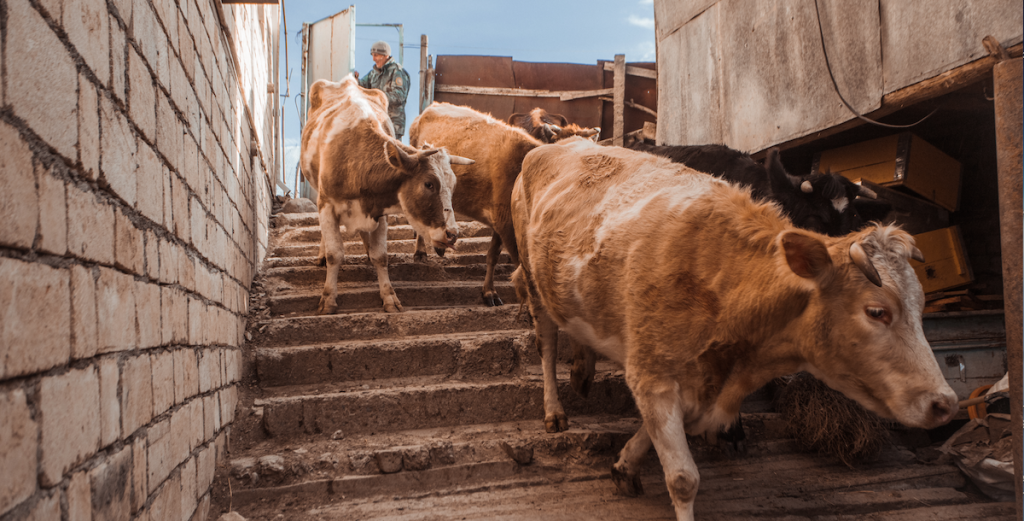
The second Karabakh war and faith in the Almighty
The village of Garachinar, Goranboy region, was located in close proximity to the front line. In the fall of 2020, during the days of the second Karabakh war, the village was under artillery fire, and many residents left for safer places.
Jamshid, whose son was at war, never left the village with his family for a single day. According to him, this is also connected with his faith and philosophical views.
“If a person believes in the Almighty and understands that the Almighty has unlimited power, there is no point in taking any emergency measures for the sake of his safety. If a person does this, then he simply does not trust the Almighty”, he explains.
“Faith is when you throw yourself into the arms of the Almighty with your eyes closed, like a baby trusting his mother”.
He recounts an experience during the war that further strengthened his faith:
“One of the families left the village on pain of death, but on the way they got hit by a Grad shell, it fell right on their car. We stayed in the village, and nothing bad happened to us. What is ordained by God is to be, and it cannot be avoided”.
With the support of RLNE













